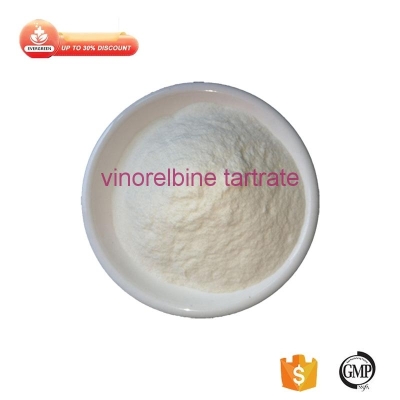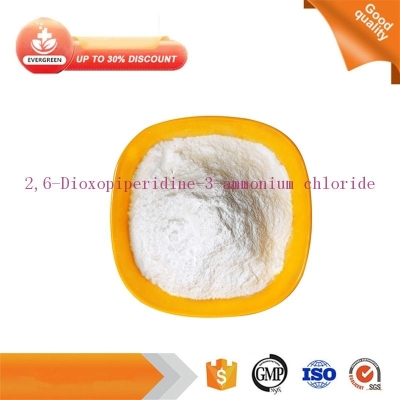China's first "Chinese Expert Consensus on Lung and Thymus Neuroendocrine Tumors" was released
-
Last Update: 2021-11-04
-
Source: Internet
-
Author: User
Search more information of high quality chemicals, good prices and reliable suppliers, visit
www.echemi.com
*Only for medical professionals to read and reference.
Please do not forward it.
At the 24th National Conference on Clinical Oncology and the CSCO Annual Conference 2021, Professor Cheng Yuejuan from the Department of Oncology, Peking Union Medical College Hospital "Expert Consensus" gave a detailed interpretation
.
Neuroendocrine tumors originate from different neuroendocrine cells and can occur in different organs of the human body.
They are highly heterogeneous and belong to a class of rare diseases
.
However, in the past ten years, the incidence of neuroendocrine tumors has increased year by year, which has gradually attracted people's attention
.
Among them, the incidence of pulmonary neuroendocrine tumors is second only to gastrointestinal pancreatic neuroendocrine tumors, while thymic neuroendocrine tumors are rare
.
At present, the naming and pathological classification of lung and thymic neuroendocrine tumors are quite different from those of gastrointestinal pancreatic neuroendocrine tumors
.
The principles of clinical diagnosis and treatment are also different from those of gastrointestinal pancreatic neuroendocrine tumors .
In view of the current status of diagnosis and treatment of lung and thymic neuroendocrine tumors in China, in order to effectively improve the standardized diagnosis and treatment level of Chinese clinicians, the Neuroendocrine Expert Committee of the Chinese Society of Clinical Oncology has conducted multidisciplinary discussions and exchanges, combined with existing clinical research evidence.
The European Society of Neuroendocrine Tumors (ENETS), the National Comprehensive Cancer Network (NCCN), the European Society of Medical Oncology (ESMO) clinical diagnosis and treatment guidelines and the World Health Organization (WHO) classification standards, formulated China’s first "Chinese Lung and Thymus Nerve Expert consensus on endocrine tumors (hereinafter referred to as the consensus)
.
The consensus is divided into ten parts, covering epidemiology, clinical manifestations, biochemical indicators, imaging examinations, other examinations, pathological diagnosis, diagnostic procedures, staging and prognosis, treatment methods and follow-up
.
Hope it will be helpful to clinicians in the diagnosis and treatment of lung and thymus neuroendocrine tumors
.
Neuroendocrine tumors of the lung and thymus are relatively rare breast tumors.
Due to their low incidence, atypical clinical manifestations, high heterogeneity, and clinical diagnosis and treatment difficult
.
Many patients do not get timely diagnosis or lack effective treatment methods, which leads to huge threats to their lives
.
In recent years, with the deepening of the understanding of diseases and the continuous development of medical technology, therapeutic drugs have come out one after another, providing doctors with more effective treatment methods, and at the same time bringing hope to patients to prolong survival and improve the quality of life
.
According to the individual conditions of the patient, the treatment options can be surgical resection, local treatment, drug therapy, etc.
The treatment drugs include somatostatin analogs (SSAs) (such as lanreotide and octreotide), molecular targeted drugs (such as everolimus) , Sofatinib), chemotherapy (such as streptozotocin-based regimens), peptide receptor-mediated radionuclide therapy (PRRT), and IFNα and immunotherapy
.
In recent years, the development and marketing of targeted drugs has opened a new era of neuroendocrine tumor therapy
.
In the consensus, experts introduced and recommended the two targeted drugs, everolimus and sofatinib, respectively
.
Everolimus is a mammalian target of rapamycin inhibitor, and is recommended for the treatment of advanced lung and thoracic neuroendocrine tumors
.
Sofatinib is a new type of oral tyrosine kinase inhibitor with dual activities of anti-angiogenesis and immunomodulation
.
As an innovative drug independently researched and developed by China with independent intellectual property rights, it has been approved for use in unresectable locally advanced or metastatic, advanced non-functional, and well-differentiated (G1, G2) pancreatic or non-pancreatic neuroendocrine tumors
.
In this consensus, experts recommend sofatinib for the treatment of advanced lung and thymic neuroendocrine tumors based on the significant survival benefits of sofatinib in clinical studies
.
The release of this consensus provides a basis for standardized clinical diagnosis and treatment of lung and thymic neuroendocrine tumors.
It will play a positive role in improving the diagnosis and treatment of lung and thymus neuroendocrine tumors in China and prolonging the survival of patients with lung and thymic neuroendocrine tumors.
effect! *This material aims to promote the communication and exchange of medical information
.
This information is for academic reference only by medical and health professionals, not for the general public, nor for advertising
.
For prescription, please refer to the drug insert approved by the State Drug Administration
.
Please do not distribute or forward this information
.
NP-STD-21N81-Valid Until 2023 Sep
This article is an English version of an article which is originally in the Chinese language on echemi.com and is provided for information purposes only.
This website makes no representation or warranty of any kind, either expressed or implied, as to the accuracy, completeness ownership or reliability of
the article or any translations thereof. If you have any concerns or complaints relating to the article, please send an email, providing a detailed
description of the concern or complaint, to
service@echemi.com. A staff member will contact you within 5 working days. Once verified, infringing content
will be removed immediately.







